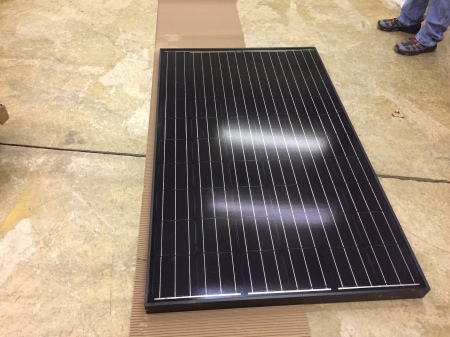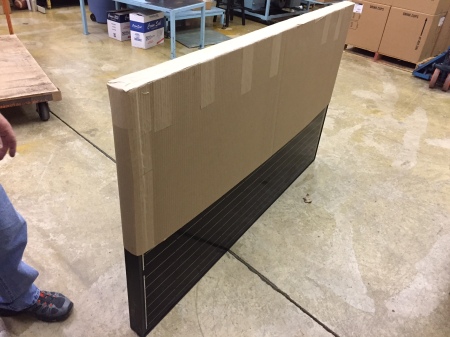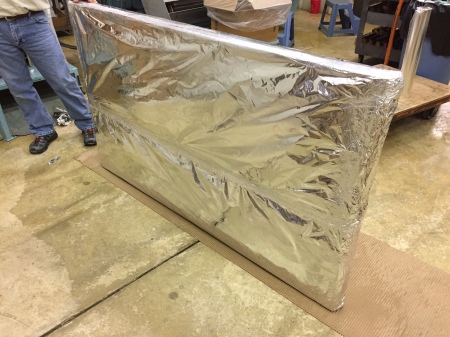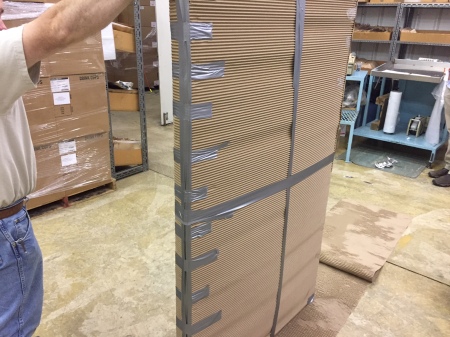So I understand the danger of an EMP attack and the resulting chaos that would ensue. Lots of people die and anyone who survives has to go back to using horses and herding alpacas. But the difference between the post-EMP world and the pre-industrial world is the knowledge of how electricity works, how other technologies work, and the knowledge of modern medicine. While life expectancy would drop significantly, I don't think it would completely revert to earlier times (after the initial die-off) because people will still know, for example, that blood-letting is not a way to cure disease and that you need to wash your hands when delivering a baby. Also, while the grid will go down, there will be plenty of people with solar panels and other electric generators that still function. It's not like there will be electricity absorbing nanites like in that tv show Revolution. So people will start to rebuild because that's what people do. They may have to fight for every little thing along the way, but they will.
Here is my take on an attack using nuclear weapons. The "old school" attack with hundreds/thousands of ground burst nukes used by each side (and maybe more countries) would do extreme damage and possibly end mankind due to nuclear winter. A "new school" EMP attack, using just a few air burst specialized nukes, would cause no structural damage, would start no fires and thus no nuclear winter, and kill very few outright (wouldn't want to be in a plane at that time). Such an attack kills by loss of services, which modern folks depend upon for their lives. Not the case when I was a Minuteman Launch Officer in the early 80s. Back then, we had an option to use high altitude fuzing bursts which would have disrupted communication, but that is about all it would have done. That was back before the microchip and computers controlling every aspect of our lives. Our modern dependence on electronics is why EMP is such a deadly weapon. Today, fry the microchip and everything stops working. Since almost no food is grown locally nowadays and actually comes from all over the world, halt distribution and 90% of the population starves to death.
With a conventional nuclear exchange between superpowers, the whole world gets impacted... even if no warheads explode on your continent. Radiation and particulates in the atmosphere would spread worldwide. With an EMP attack, the impact is localized. This means parts of the world, and maybe even parts of our country, would not be impacted and thus be available to start the rebuilding process. We have armed forces and resources spread all over the globe and they too would be able to assist... given time.
My point is, rebuilding will be much easier after an EMP attack. Not so after a conventional nuclear strike. So for me, I don't prep to survive a nuclear exchange. Not the kind of world I would want to live in. But I do prep to survive after an EMP attack as the environment has not been compromised and help (rebuilding) will arrive. Just a matter of time. So my thoughts are after an EMP attack, yes we will have a great loss of life and chaos... especially in the cities. Those remaining will be sent back in time and probably further back in time than we think, depending on how well prepared. But this will be short term. As replacement electronics start coming in, basic services will start to be restored. There will be a mass migration of folks into the impacted areas to repopulate and take advantage of all the resources/structures still in place.
I picture our military stationed overseas returning within weeks & months to our coastal port cities. They will start the rebuilding process there and from there direct the import of foods, electronics, equipment & personnel needed to bring services back. Will not be quick but it will happen. We just have to prep to survive until services are brought back. Point being, as quick as an EMP attack can send us back 200 + years, the recovery can be almost as quick.
My point is even among most preppers, we will be going back to a time of hand tools and no animals to pull our wagons or work the gardens. Heck how many preppers would survive a year after an instantaneous loss of all electricity?









